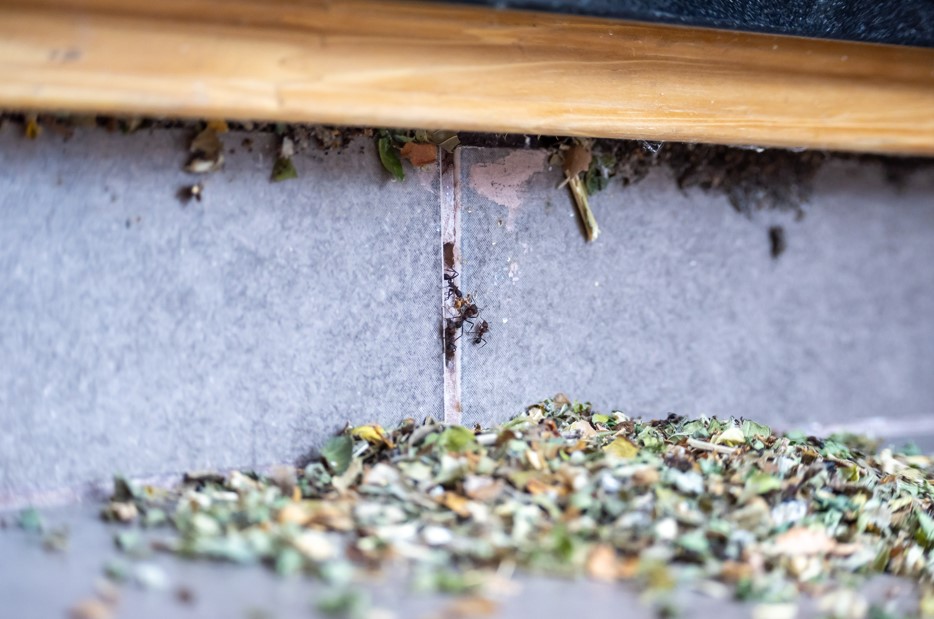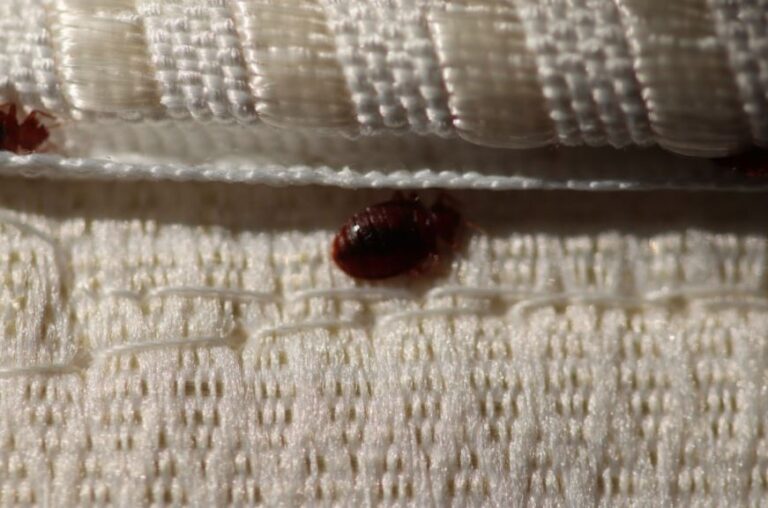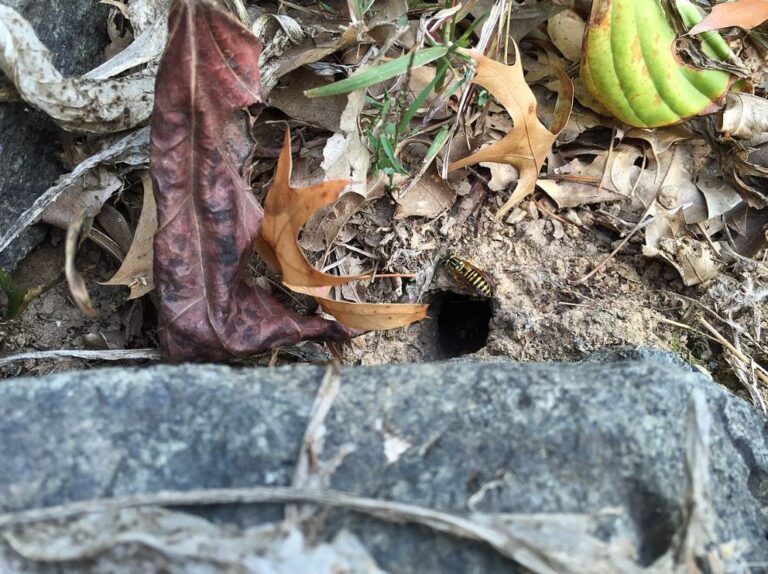
Pest infestations in basements are a common issue for many New Jersey homeowners. Rodents, termites, spiders, and other pests find the dark, damp conditions of basements particularly inviting. Proactive measures and effective pest control strategies can help you maintain a pest-free environment.
While DIY methods can help, sometimes professional pest control services are necessary to tackle persistent issues like bug and rodent infestations. Preventative steps along with the help of an expert can ensure your basement remains a safe, healthy space.
Common Pests Found in New Jersey Basements
Basements and crawl spaces in New Jersey homes are often magnets for a variety of pests. Understanding the types of pests that commonly invade these areas can help homeowners take appropriate measures to deter pests and prevent future infestations.
Rodents
Rodents, such as mice and rats, are frequent invaders of New Jersey basements. These pests can squeeze through small openings and quickly establish nests. Rodent infestations pose significant health risks as they can contaminate food and surfaces with their droppings, carry diseases, and cause structural damage by gnawing on wood and wires.
Spiders
House spiders and the more dangerous black widow spiders are commonly found in basements. While house spiders are generally harmless, black widow spiders can pose serious health risks due to their venomous bites. Spiders are attracted to basements because they offer secluded environments with abundant prey like insects.
Insects
Insects such as ants, cockroaches, silverfish, and termites thrive in the moist conditions often found in basements and crawl spaces. Ants and cockroaches can contaminate food and surfaces, while silverfish feed on paper, fabrics, and other organic materials. Termites are particularly destructive, as they consume wood and can compromise the structural integrity of a home.
Centipedes and Millipedes
Centipedes and millipedes are also common in basements. While centipedes can bite, the primary concern with both pests is their tendency to invade in large numbers, creating an uncomfortable environment. They are attracted to the damp conditions of basements and crawl spaces.
Moisture Problems
Moisture problems like mold, mildew, and fungi flourish in the humid conditions often found in basements. These organisms not only damage property but also pose various health risks, particularly respiratory issues and allergies. Controlling moisture levels is essential to deter pests and maintain a healthy living space.
Risks Associated with Basement Pests
Basement pests pose a variety of health and structural risks that can significantly impact the safety and integrity of your home. Understanding these risks can help homeowners take the necessary steps to prevent pests and safeguard their living spaces.
Health Risks
Rodent Droppings and Urine
Rodents, such as mice and rats, are common household pests that leave behind droppings and urine. These contaminants can carry diseases like Hantavirus and Salmonella, posing serious health risks to humans. Exposure to rodent droppings and urine can lead to respiratory issues and other severe health conditions.
Bites and Stings from Spiders and Insects
Spiders and insects commonly found in basements can bite or sting, causing pain and potential allergic reactions. Insect stings and bites can also result in swelling, itching, and more severe allergic responses in sensitive individuals.
Allergies and Asthma Triggers
Cockroach allergens and mold spores are significant triggers for allergies and asthma. Cockroach droppings, saliva, and shed body parts can exacerbate respiratory conditions, while mold and mildew release spores that can cause allergic reactions and worsen asthma symptoms. Maintaining a dry environment and eliminating standing water sources can help reduce these risks.
Structural Risks
Termite Damage to Wooden Structures
Termites cause extensive damage to wooden structures. They feed on wood, compromising the structural integrity of your home. If left unchecked, termite infestations can lead to costly repairs and even make buildings unsafe.
Rodents Chewing Through Wires and Insulation
Rodents have a natural tendency to gnaw on materials, including wires and insulation. This behavior can lead to significant structural damage, such as short circuits, electrical fires, and reduced energy efficiency due to damaged insulation. Regular inspections and sealing entry points can help prevent future infestations and mitigate these risks.
Mold and Mildew Causing Rot and Decay
Moisture pests like mold and mildew thrive in damp basement environments. Over time, these fungi can cause wood and other building materials to rot and decay. This not only weakens the structure but can also result in expensive repairs. Controlling humidity levels and ensuring proper ventilation are essential steps in preventing mold and mildew growth.
Factors That Attract Pests to Basements
Basements are particularly vulnerable to pest infestations due to several key factors that create an inviting environment for pests. Understanding these factors can help homeowners take proactive steps to deter pests and reduce pest activity.
Moisture and Humidity
Basements often have higher levels of moisture and humidity compared to other parts of the house. This damp environment is ideal for many pests, including insects, spiders, and mold. Moisture attracts pests by providing them with the hydration they need to survive and thrive. Using dehumidifiers and ensuring proper ventilation can help control moisture levels and make basements less attractive to pests.
Clutter and Storage Items
Cluttered basements filled with storage items provide numerous hiding spots and nesting areas for pests. Cardboard boxes, old furniture, and other stored goods offer shelter and protection, making it easier for pests to go unnoticed. Keeping basements organized and reducing clutter can help deter pests and make it easier to spot any signs of pest activity.
Food Sources
Pet food and stored food items can attract pests to basements. Rodents, ants, and cockroaches are particularly drawn to accessible food. Storing food in airtight containers and cleaning up spills promptly can minimize the attraction for pests. Check for and remove any potential food sources regularly that might have fallen or been forgotten in basement storage areas.

Cracks and Gaps in Foundation and Walls
Cracks and gaps in the foundation and walls of basements serve as entry points for pests. These small openings allow insects and rodents to easily access the basement. Regularly inspecting the basement’s perimeter and sealing cracks with appropriate materials can significantly reduce the chances of pests entering your home. Tree branches that touch or overhang the house can also provide a pathway for pests to access your basement and should be trimmed back.
Exposed Insulation
Certain types of insulation, such as fiberglass, can attract pests because it provides warmth and nesting material. Rodents and insects often use insulation to build nests and create cozy habitats. Foam insulation is less attractive to pests compared to fiberglass, but it’s still essential to monitor for any signs of pest activity. Ensuring that insulation is properly installed and maintained can help prevent pests from using it as nesting material.
By addressing these factors that attract pests to basements, homeowners can create an environment that is less appealing to pests and reduce the likelihood of infestations. Regular maintenance, cleanliness, and professional pest control services are crucial steps in keeping basements pest-free.
Maintaining a Pest-Free Basement
Maintaining a pest-free basement requires diligent effort and proactive measures. By addressing common health and structural risks associated with pests, homeowners can ensure a safer and more comfortable living environment. Controlling moisture and humidity, reducing clutter, properly storing food, sealing cracks, and keeping insulation in check are essential steps in making basements less attractive to pests. Regular inspections and professional pest control services further help in managing and preventing infestations. With the right strategies and consistent maintenance, homeowners can protect their basements from unwanted pests, preserving both the integrity of their home and the health of its occupants.




